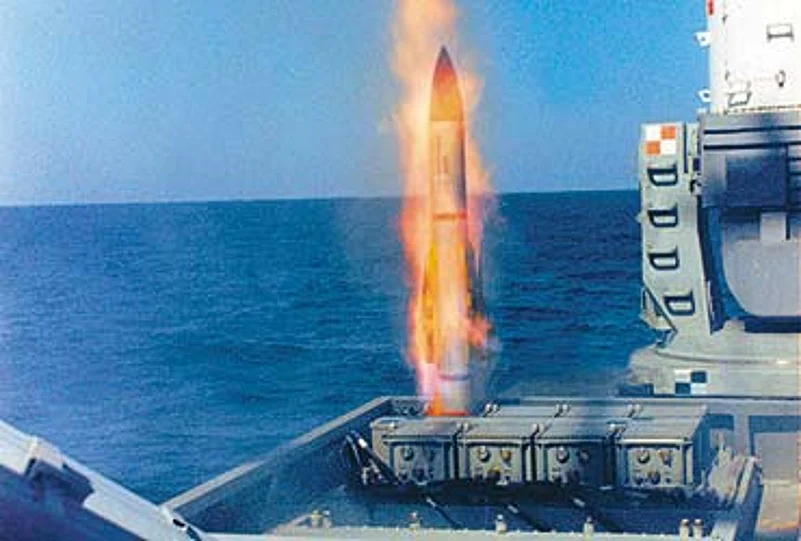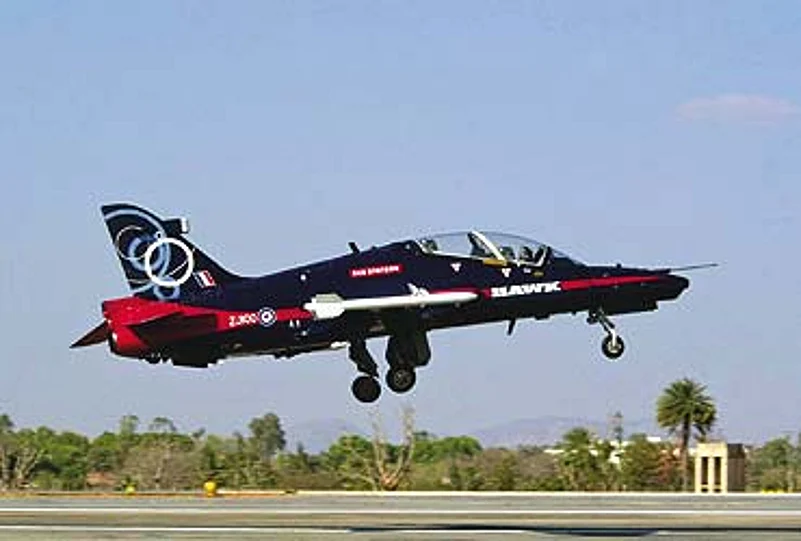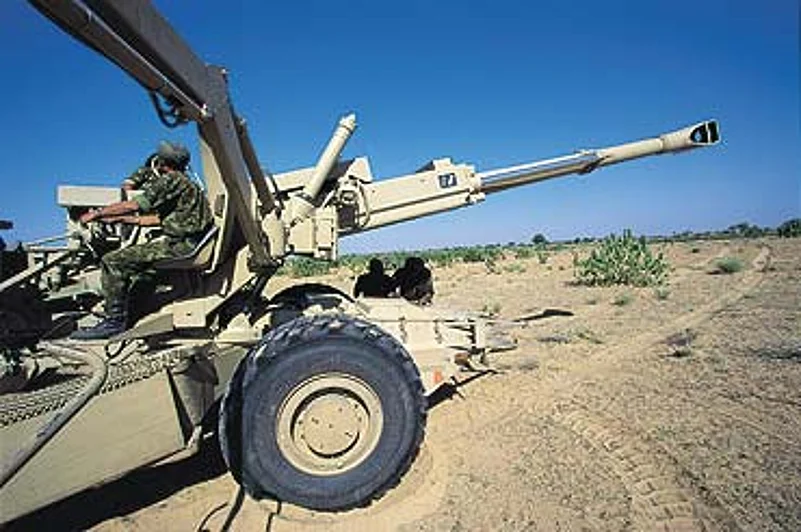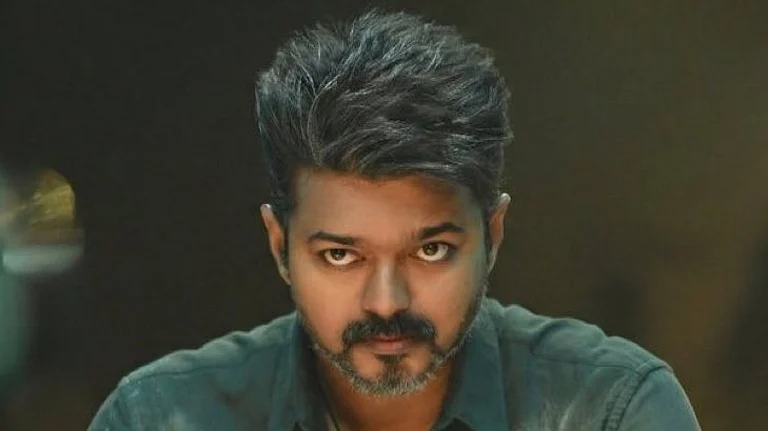- Fixing procurement directorate's quality requirements to ensure that only the company they represent qualifies for the contract
- Influencing members of the Price Negotiating Committee
- Manipulating file notings by bureaucrats to marginalise the competition
- Lobbying through MPs for a particular weapons system
- Facilitating the payment of commissions to politicians, bureaucrats and armed forces officers involved in the procurement process
***
"If agents can't be done away with, it's better to do deals through them."
—Prime Minister Manmohan Singh on the role of middlemen in defence deals
Arms procurement in India has always been mired in controversy. And the source of much of the suspicion and misgivings: the ubiquitous middleman. In the post-Bofors era, his role has time and again been questioned. Are these facilitators really required? Can't the government and the armed forces negotiate deals directly? The PM seems to have only been echoing what many in South Block have been saying all along—if defence deals necessarily require middlemen, then why not register them and involve them officially, lay down conditions under which they can operate? That will make the transactions transparent, runs the argument.
However, this is easier said than done. Successive governments have thought of various measures to try and institutionalise the role of middlemen in arms procurements, but with little success. The catch lies in the fact that there can be no legal stamp for bribes/commissions paid to politicians, bureaucrats and officers involved in the procurement process. No wonder then that despite the government introducing a registration scheme in 2002, no middleman has so far come forward.

Barak Missile: The CBI says Suresh Nanda acted as middleman in the Rs 1,300-crore deal with Israel.
The focus turned on arms agents again last fortnight after the CBI filed firs against former defence minister George Fernandes and arms dealer Suresh Nanda in the Barak deal. From Win Chadha, who brokered the Bofors deal in the '80s, to Suresh Nanda now, little it seems has changed in India's defence procurements. Very clearly, the much-criticised and opaque procurement system followed by the ministry of defence (MoD) and the lack of swift action and punishment has provided an ideal environment for arms dealers to prosper. As a senior defence ministry official told Outlook, "The middleman can influence the deal at every level."
Here's how:
- The officers serving in the procurement directorate prepare the general staff quality requirements (GSQR). A specially tailored GSQR could ensure that only a specific vendor qualifies. The middlemen ensure that the GSQR favours the company they represent. The Scorpene submarine contract is a prime example of a single-vendor deal.
- The price negotiation committees (PNCS) comprising of bureaucrats, service personnel and financial advisors is also open to influence. Middlemen provide the vendor companies with information that could help them alter their negotiations so that the PNC clears it. The artillery gun deal with South African arms major Denel was scrapped after allegations in a newspaper there that an agent had been hired to source internal documents from the PNC.
- File notings by bureaucrats in the defence and finance ministries are manipulated to ensure competitors' chances are marginalised or a dubious deal pushed through.
- All major kickbacks in defence deals finally find their way to politicians, political parties and bureaucrats. Armament companies pay these commissions also through middlemen.

In 2000, when India was still dithering over the procurement of the Advanced Jet Trainer (AJT), a mysterious file noting rocked the establishment. While the British Hawk AJT had emerged as the favourite, the Czech L-159 AJT, jointly manufactured by Aero Vodochody and Boeing, clawed its way into the reckoning. While bureaucrats pointed a finger at a seniorIAF official, Air HQ insisted they were still in favour of the Hawk. For months after the L-159 got on the radar, a slew of articles in its favour came out in the media.
Covert lobbying further raised the stakes. A minister of state (MoS) then who later switched to the Congress displayed great interest in the Czech aircraft. Meanwhile, a Congress MP who was a member of the parliamentary standing committee on defence was actively lobbying for the British Hawk. Little wonder then that the CBI has listed the AJT deal in their cases under scrutiny.

Denel 155mm Howitzers: Deal worth Rs 10,000 crore, put on hold. Major lobbying by rival firms; MPs, even a serving MoS involved.
The UPA government set up a committee this year headed by a former bureaucrat, N.S. Sisodia, to streamline the procurement process. However, many in the defence establishment point out that while checks and balances can be put in place, there is no substitute for personal integrity. "We have started signing the Integrity Pact in all defence deals," a senior MoD official told Outlook, "but once a middleman has facilitated kickbacks, will all parties immediately declare it just because they signed the pact?"
Also, the Integrity Pact between the manufacturer and the government is signed only after a deal is inked. The middleman comes into play much before, at the negotiation stage. Since the pact does not have retrospective effect, the arms agent does not come under scrutiny. The fact remains that not a single middleman has yet been prosecuted by any investigating agency in India. While the CBI has been at it for nearly 20 years, it has been unable to detect any credible evidence to support its prosecution.
Many agree with the prime minister's assessment that there is a need for a reappraisal of the role of middlemen. N. Vittal, former chief vigilance commissioner, suggested that middlemen be registered as "official agents". But would any arms agent be willing to operate under government supervision? And, more importantly, is the political establishment willing to forsake commissions from defence deals....


























